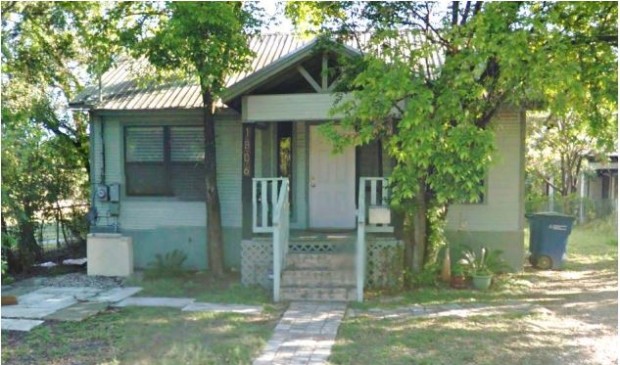Clarksville demolition sails through city process
Tuesday, November 24, 2015 by
Elizabeth Pagano Last week, plans to demolish a contributing home in the Clarksville National Register Historic District moved forward after less than 15 minutes of discussion at the Historic Landmark Commission.
Pecan Valley Homes can now move forward with the planned demolition of 1806 West 10th St., which will allow it to build a larger home. A motion to postpone the case until the Dec. 14 meeting was defeated in a vote of 4-3, with commissioners Arif Panju, David Whitworth and Alex Papavasiliou voting in opposition. Commissioners Terri Myers and Emily Reed were absent, and City Council members Delia Garza and Ann Kitchen do not have commissioners appointed. The motion required six votes to pass.
Hector Avila, who was representing the owner of the property, spoke against the postponement.
“I don’t see why we have to wait a month for this torture or whatever they want to do with us,” said Avila.
He said his client had no intention of talking to the neighborhood because “(the owner has) a five-member family, and they need a bigger house.” When asked whether Avila was referring to the demolition permit applicant, developer Pecan Valley Homes, he clarified that the developer was the applicant but that the owner had a five-person family.
Staff had recommended the postponement in order to try to craft an alternative plan for the house and to allow time for the neighborhood to talk with the owner as it had requested. However, staff did not recommend individual historic zoning for the property. Although the 1932 home is a contributing building in the Clarksville National Register Historic District, the city’s Historic Preservation Office did not find historical or cultural associations that would meet the criteria for historic landmarking.
Beth Johnson, who works in the city’s Historic Preservation Office, said staff wanted to take the time to explore alternatives, given the home’s status as a contributing structure in the district.
“The neighborhood would really like a chance to discuss with the applicants,” said Johnson. “While they need a bigger home, is there potential for an addition? Is there potential to move this home somewhere else on the site and still be able to build a house? Those discussions haven’t happened yet.”
Panju pointed out that the neighborhood was “free to engage in that discussion” irrespective of whether the demolition permit was released. He said, “It seems like their opening move is to try to coerce them to come to the negotiating table using this process. I think that’s starting off on the wrong foot.
“In my view we are being asked to intervene in a process to try to force someone to talk to someone else,” Panju continued. “The procedural posture of this is kind of odd. I’ll leave it at that.”
Commissioner Michelle Trevino disagreed completely with Panju. “Buying a property in a National Register District and then not considering that district and the people that live in that district – I feel like that is not starting off on the right foot,” said Trevino.
Avila broke it down: “The reality is that staff can’t recommend historic on it, and we need to demo. Why stretch it out?”
Trevino pointed out that the reason the commission reviews permits in National Register Historic Districts and had the power to delay demolitions for up to 180 days was, at least in part, to facilitate conversations among the preservation office, the neighborhood and applicants and to encourage education about the district and the alternatives that lie between demolition and historic zoning.
Photo courtesy of the city of Austin.
You're a community leader
And we’re honored you look to us for serious, in-depth news. You know a strong community needs local and dedicated watchdog reporting. We’re here for you and that won’t change. Now will you take the powerful next step and support our nonprofit news organization?









